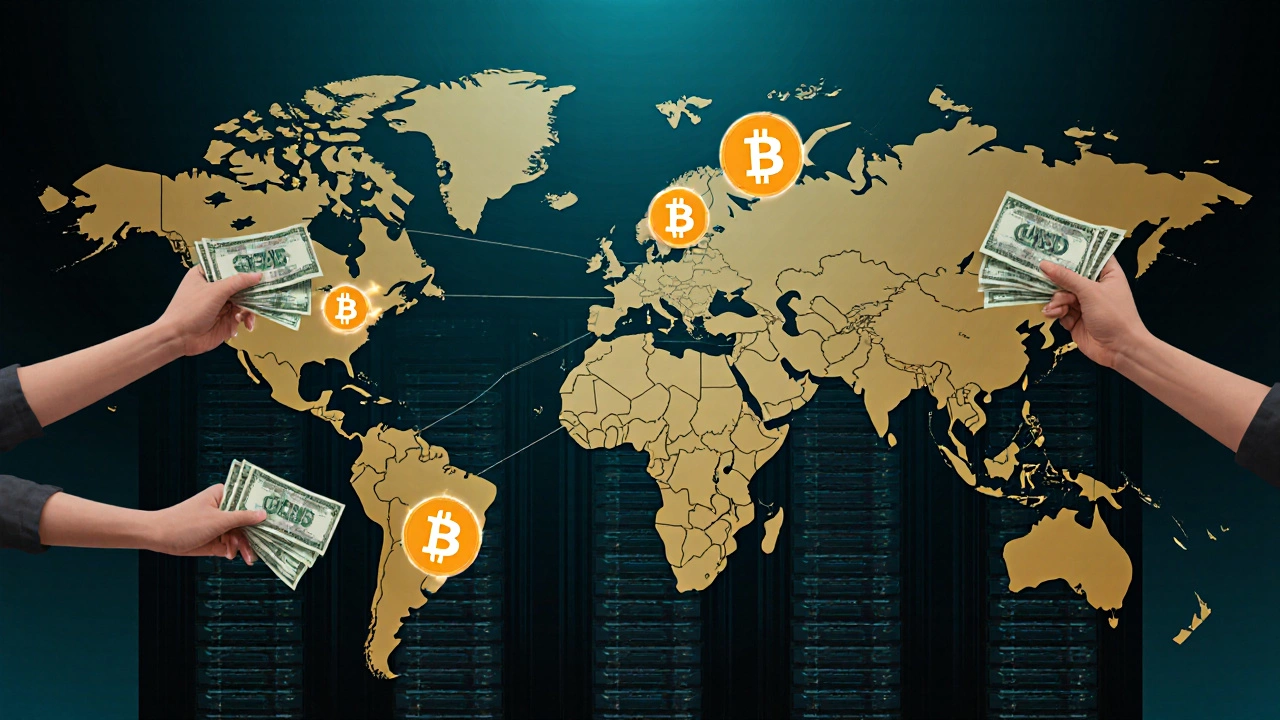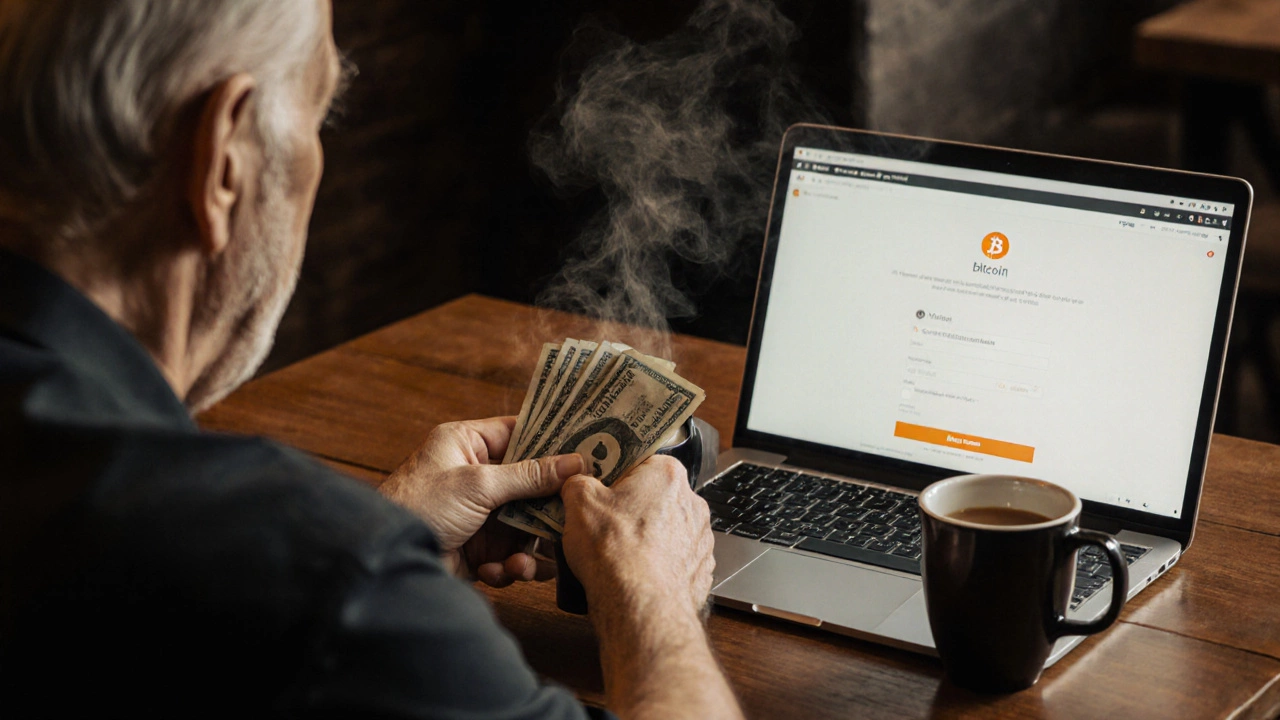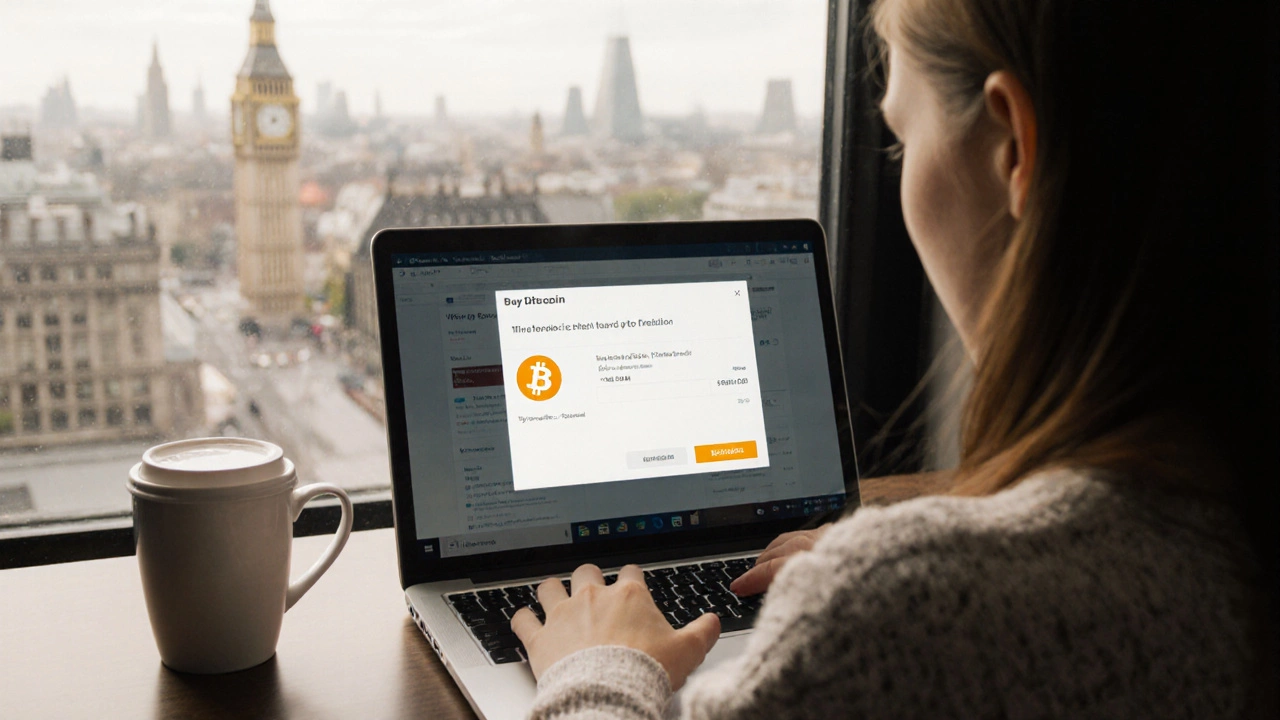Bitcoin Transaction Cost Calculator
See Where Your Bitcoin Money Really Goes
Enter your purchase amount to see how much goes to the seller versus exchange fees and hidden spreads
Your Bitcoin Transaction
When you buy Bitcoin, it feels like you’re handing cash to a digital ghost. You tap a few buttons, confirm the transaction, and suddenly you own a piece of something invisible. But where did that money go? Who actually pockets it? And why does it matter?
The Simple Answer: It Goes to the Seller
When you buy Bitcoin on an exchange like Coinbase, Binance, or Kraken, the money you send - whether it’s AUD, USD, or EUR - goes straight to the person or entity selling you the Bitcoin. That’s it. No middleman steals a cut. No secret vaults. Just a direct trade.
Most of the time, that seller is another person. Maybe it’s someone in Manila who bought Bitcoin last year and now needs cash for medical bills. Or a trader in Berlin who’s taking profits before a market dip. Sometimes, it’s a company like a Bitcoin ATM operator or a peer-to-peer platform like LocalBitcoins, where individuals list their coins for sale.
Exchanges don’t create Bitcoin. They just connect buyers and sellers. Think of them like eBay for crypto. You pay the seller. The exchange takes a small fee - usually 0.1% to 1% - and that’s their cut. The rest flows directly from your bank account to theirs.
But What If I Buy Directly From a Mining Pool?
Some people assume that when you buy Bitcoin, the money goes to the miners who created it. That’s a common myth. Miners don’t sell Bitcoin directly to consumers. They sell to exchanges, wholesale traders, or institutional buyers.
Here’s how mining actually works: Miners use powerful computers to solve complex math problems. When they succeed, they’re rewarded with newly created Bitcoin - currently 3.125 BTC per block, halved in April 2024. That’s the only way new Bitcoin enters circulation. But miners rarely hold onto it. They sell most of their reward immediately to cover electricity bills, hardware upgrades, and payroll.
So when you buy Bitcoin, you’re not paying the miner. You’re paying the exchange that bought it from the miner. The miner got paid in fiat currency weeks or months ago. Your money? It’s going to whoever sold the coin to the exchange - likely a trader, a hedge fund, or another retail investor.
Peer-to-Peer Buyers: The Real Human Side
On platforms like Paxful or Bisq, you can buy Bitcoin directly from another person. No exchange involved. You pay them via bank transfer, PayPal, gift cards, even cash in person. In these cases, the money goes 100% into their pocket.
I’ve seen stories from Sydney locals who buy Bitcoin this way. One guy I know pays in cash every Friday at a coffee shop in Newtown. He gets his Bitcoin in seconds. The seller? A 68-year-old retiree who mined Bitcoin back in 2013 and never touched it. He uses the cash to fund his trips to Thailand.
These transactions are raw, personal, and unregulated. There’s no middleman. No fee structure. Just two people making a deal. The money doesn’t flow through banks or payment processors - it flows between humans.

What About the Exchange Fees? Who Gets Those?
Exchanges make money in two ways: trading fees and spread. A trading fee is what you pay when you buy or sell - say, 0.5% of your transaction. That money goes to the exchange’s corporate bank account. It funds their servers, customer support, compliance teams, and marketing.
The spread is trickier. Some exchanges don’t show you the real market price. Instead, they offer a slightly higher buy price and a slightly lower sell price. The difference? That’s their hidden profit. If Bitcoin is trading at $62,000, they might let you buy at $62,300. That extra $300? They keep it. You never see it listed as a fee - it’s baked into the price.
That’s why it’s smart to compare prices across platforms. On Kraken, you might pay $62,100. On a smaller Australian exchange, you could pay $62,500. The difference isn’t about security - it’s about how aggressively they’re marking up the price.
Where Does the Money Go After the Sale?
Let’s say you buy $1,000 worth of Bitcoin. $990 goes to the seller. $10 goes to the exchange.
The seller now has $990 in their bank account. What do they do with it? Maybe they buy groceries. Maybe they pay rent. Maybe they reinvest it in Ethereum. Maybe they stash it in a savings account. It’s impossible to track - and that’s the point.
There’s no central ledger showing where Bitcoin money ends up. Unlike traditional stock markets, where institutional buyers dominate, the Bitcoin market is wildly decentralized. A single transaction could involve a teenager in Lagos, a hedge fund in Singapore, and a pensioner in Perth.
This is why Bitcoin isn’t just a currency - it’s a global network of individual financial decisions. Your $1,000 doesn’t fund a company. It doesn’t build infrastructure. It doesn’t pay dividends. It simply changes hands.
Why This Matters for You
Understanding who gets the money changes how you think about buying Bitcoin.
If you believe Bitcoin is a store of value, then you’re buying from someone who’s selling their belief. If you think it’s a speculative asset, you’re buying from someone who’s taking profits. If you see it as a hedge against inflation, you’re buying from someone who’s worried about the same thing.
There’s no corporate entity behind Bitcoin. No CEO. No board of directors. No shareholder meetings. Every transaction is a direct handoff between people. That’s the power - and the risk.
When you buy Bitcoin, you’re not investing in a company. You’re betting on the next person who’ll buy it from you. The value isn’t created by profits or revenue. It’s created by trust, scarcity, and collective belief.

What Happens If the Exchange Goes Bust?
In 2022, FTX collapsed. Thousands of users lost access to their Bitcoin. Why? Because the exchange didn’t hold the Bitcoin they claimed to. They used customer funds to cover losses elsewhere - a classic Ponzi-style move.
That’s why storing Bitcoin on an exchange is risky. The money you paid went to the seller - but your Bitcoin? It’s sitting in the exchange’s wallet. If they get hacked or go bankrupt, you might not get it back.
Smart buyers move their Bitcoin to a personal wallet within 24 hours. That way, even if the exchange vanishes, your coins are safe under your control. You own the private keys. No one else can touch them.
Who’s Really Profiting From Bitcoin?
Let’s be clear: the biggest winners aren’t the people buying Bitcoin. They’re the ones who bought it early.
Someone who bought 1 Bitcoin in 2010 for $0.01 now holds over $60 million. That’s not because of you buying it today. That’s because they held on through crashes, bans, and skepticism.
The people profiting right now? The miners who got cheap electricity in Texas or Kazakhstan. The early adopters who sold at $30,000 and bought back at $50,000. The exchanges that rake in millions in fees every month.
As a new buyer, you’re not lining the pockets of a corporation. You’re joining a global game of musical chairs - where the music might stop at any time. But if you understand who’s sitting where, you can play smarter.
Final Thought: You’re Not Buying Bitcoin - You’re Buying Trust
When you buy Bitcoin, you’re not buying a product. You’re buying into a system. A system where money moves without banks. Where ownership is proven by math, not paperwork. Where the only rule is scarcity.
The money you spend? It goes to whoever’s willing to sell. That could be a stranger. A trader. A miner. A retiree. It doesn’t matter who - as long as they’re real, and you’ve verified the transaction.
That’s the beauty of Bitcoin. No gatekeepers. No central authority. Just you, your wallet, and the person on the other side of the screen.
Do I pay taxes when I buy Bitcoin?
In Australia, buying Bitcoin with AUD isn’t a taxable event. You only pay capital gains tax when you sell it for a profit, trade it for another crypto, or use it to buy goods or services. Keep records of your purchase price and date - the ATO requires this.
Can I buy Bitcoin without an exchange?
Yes. You can use peer-to-peer platforms like LocalBitcoins, Paxful, or Bisq to buy directly from individuals. You can also buy Bitcoin ATMs, though fees are often higher (5-10%). Always verify the seller’s reputation and use escrow services when available.
Is Bitcoin mining still profitable for individuals?
Almost never. Mining Bitcoin today requires specialized ASIC hardware, cheap electricity (under $0.08/kWh), and cooling systems. Most individual miners operate at a loss unless they’re part of a large mining pool. The real profit is in selling the Bitcoin they mine - not the mining itself.
Why do Bitcoin prices vary so much between exchanges?
Liquidity and demand differ across platforms. Smaller exchanges in Australia often have fewer buyers, so prices rise to attract sellers. Larger global exchanges like Binance have tighter spreads. Also, some exchanges add premiums for AUD deposits due to banking restrictions.
What happens if the person I buy from doesn’t send the Bitcoin?
On regulated exchanges, your purchase is protected - they hold the Bitcoin until payment clears. On peer-to-peer platforms, use escrow. Never send money before receiving the Bitcoin. If you’re scammed, there’s no refund. That’s the trade-off for decentralization.
